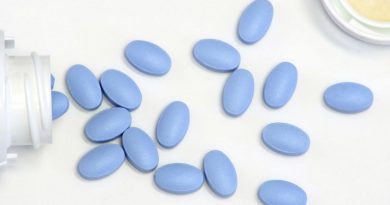Top 10 tips for women trying to conceive
Originally posted 2021-09-29 04:37:43.
Apart from taking better care of your body, there are a few other steps that can improve a woman’s chances of pregnancy.
Record menstrual cycles
Fertility experts advise women to track and be aware of their menstrual cycles – specifically how far apart one’s cycles are, which will help time intercourse around ovulation (the time when ovaries release an egg).
Monitor ovulation
Women usually ovulate 12 to 16 days before the start of their next period. A woman’s egg is fertile for only 12 to 24 hours after release whereas a man’s sperm can survive for up to 5 days in a woman’s body.
Home ovulation-prediction kits can help determine when ovulation occurs. Another method is to regularly check the amount and appearance of cervical mucus. Just before ovulation, the mucus increases and becomes thinner, clearer and more slippery.
Have intercourse on alternate days
During the six-day fertile window (starting 5 days before ovulation), have sex on alternate days instead of daily, as it is easier on the couple.
Aim for a healthy weight
Being too heavy or too thin reduce the odds of conceiving. Women who are underweight may not have regular periods. Losing 5 to 10% of body weight before trying to conceive can improve the fertility of an overweight woman.
Take prenatal vitamins
It is strongly advised to take 400 micrograms of folic acid at least one month before getting pregnant to prevent birth defects. The baby’s brain and spine development occur 3 to 4 weeks after conception before most women know they’re pregnant.
Eat healthy
Eating a variety of fruits, vegetables, lean protein, whole grains, dairy and healthy fats, provides nutrients such as calcium, iron, and protein.
Reduce intake of high-mercury fish like swordfish, shark, king mackerel, white tuna.
Limit caffeine to 1 to 2 cups of coffee.
Avoid strenuous workouts
Doctors observed menstrual irregularities in women who exercise heavily frequently.
Know of age-fertility correlation
As age increases, a woman’s fertility decreases due to a reduction in the quantity and quality of her eggs. Fertility declines gradually after 30’s, sharper after 37, and a steeper after 40.
Avoid smoking, drugs, drinking
Smoking (active or passive) ages a woman’s ovaries and speed up the loss rate of her eggs. Avoid recreational drugs. It is also safest to avoid alcohol when trying to conceive.
Seek help when needed
Both the woman and the man should undergo fertility evaluation if they are unsuccessful in conceiving after 6 months of regular intercourse. If the woman is below age 35, the couple can try for a year before consulting a fertility specialist.
Get Female Infertility Treatment, Libodo Treatment From Khokar Clinic
Related Links :
- Ayurveda Infertility Treatment Clinic in Shahpur
- Meet Begumpet’s Leading Ayurvedic Sexologist
- Ayurveda Infertility Treatment Clinic in Chennai
- Ayurveda Infertility Treatment Clinic in Palanpur
- Ayurveda Infertility Treatment Clinic in Ruwi
- Ayurveda Infertility Treatment Clinic in Mehsana
- Ayurveda Infertility Treatment Clinic in Kurgunta
- Ayurveda Infertility Treatment Clinic in Osmanabad
- Best Ayurvedic Sexologist in Pietermaritzburg





